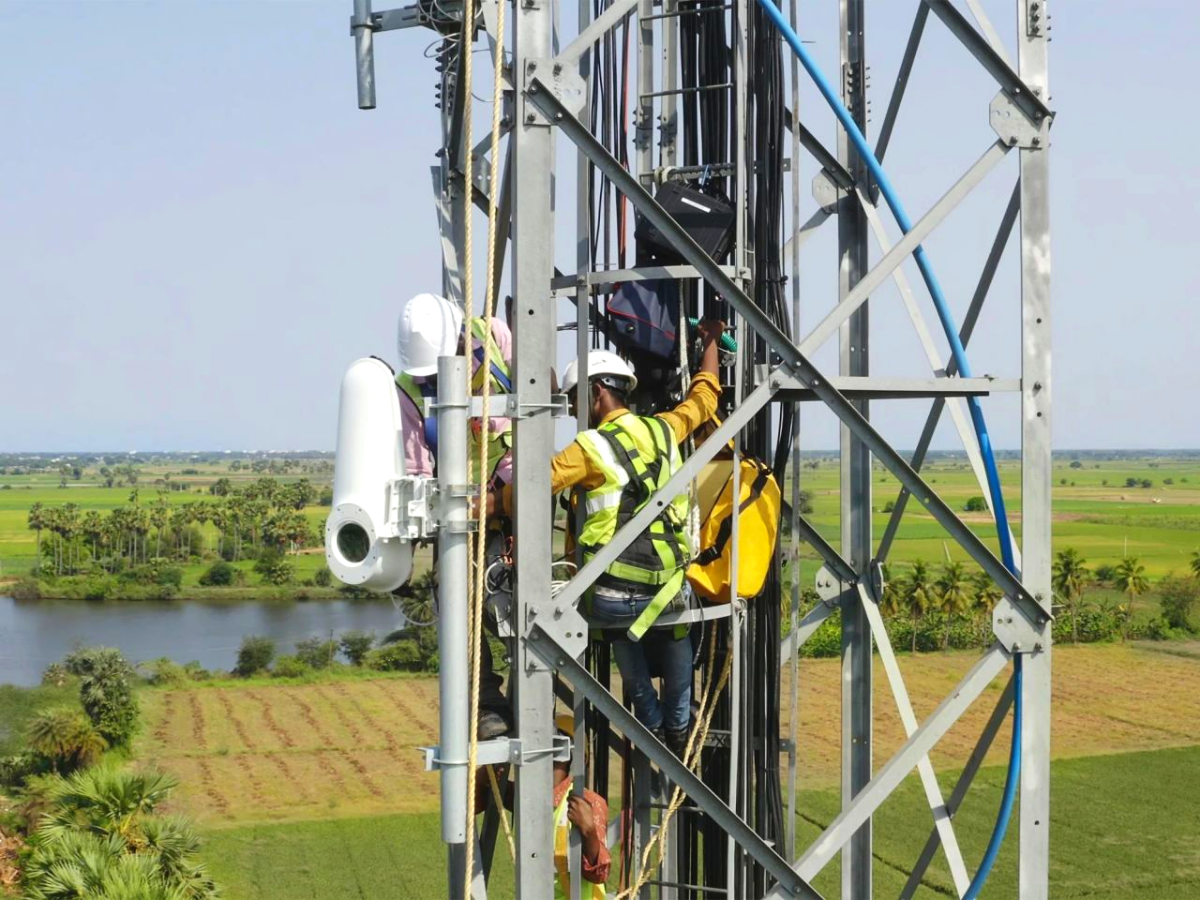Internet connection between Brazzaville, the capital of the Republic of the Congo, and Kinshasa, the capital of the Democratic Republic of the Congo, is a challenging matter.
Despite being only three miles apart, the Congo River separates the two capitals. Getting internet from traditional fibre cabling requires the cables to be routed around the river. As a result of this, broadband prices are up to five times more expensive as engineers need to lay down around 250 miles of cabling.
Alphabet X, previously known as Google X, came up with a plan to remedy this. Called Project Taara, Alphabet X used pre-existing technology from Project Loon. This was a broadband project that transmitted high-speed internet via high-altitude balloons.
Project Taara has refined the wireless optical communications (WOC) technology used on Project Loon. The system uses narrow and invisible beams of light to carry data in the same way as traditional fibre cabling. Instead of cabling, two terminals link together via line of sight.
It can deliver internet speeds of up to 20Gbps. According to Alphabet, the system served nearly 700 TB of data with 99.9% availability within 20 days of being set up. The project’s director of engineering, Baris Erkmen, had this to say about the advantages provided by Taara:
‘Being able to deliver high-speed internet (up to 20Gbps) most of the time is a vastly better option than having millions of people miss out on the benefits of connectivity because the economics of laying hundreds of kilometers of cable in the ground simply don’t stack up,’
Although Project Taara successfully delivers high-speed internet, it does not come without issues. The terminals must remain within line of sight for an internet connection to be available. Accordingly, any obstacle to this disrupts the internet connection.
One of the main issues facing the viability of Project Taara is the weather. Fog and haze prevent the terminals from connecting. Equally, birds flying in front of the terminals break the connection. During a trial in India, monkeys disrupted the connection by jostling the terminal.
To counteract this, Taara is using improved pointing and tracking and automatic adjustments to laser power or processing bits on the fly. Erkmen said that whilst the system is not infallible, it will improve the lives of many people:
‘While we don’t expect to see perfect reliability in all kinds of weather and conditions in the future, we’re confident Taara’s links will continue to deliver similar performance and will play a key role in bringing faster, more affordable connectivity to the 17 million people living in these cities,’
The success of Project Taara could provide a boost for access to WiFi in rural areas. Even in the UK, work is continuing to improve the quality and speed of WiFi in rural areas. Openreach wants to provide 1Gbps of full-fibre WiFi to 6.2 million rural homes and premises by 2026. In remoter and poorer countries, reliable WiFi is hard to come by.
It is not yet clear when Project Taara could be rolled out to more people. At present, talks are ongoing with Telcos, ISPs and governments around the world to gauge whether Project Taara is suitable. Not all locations are best suited to this form of internet connection. This is especially true of places that experience high levels of fog.
Forging an internet connection across the Congo River is just the first step for Project Taara. Some issues need to be ironed before Project Taara can be rolled out fully. Nevertheless, fast and reliable WiFi is available without cables and will be an important tool in the effort to provide WiFi to everyone.
About the Author: James Hingley
James Hingley is a contributing Features Writer with extensive expertise in International Relations, Politics and Culture.
Recommended for you

Antidepressant Prescribing at Six-Year High
More people are taking antidepressants than ever. Is this a dark sign of the times or an indication that mental health stigma is changing?

Can AI be Used to Determine Cancer Recurrence?
When cancer patients go into remission, they often worry about it coming back. AI can now help identify those at risk of cancer recurrence.

Pegasus – Still a Threat to the UK?
The notorious Pegasus spyware has been misused to exploit vulnerabilities in devices, even those kept within the walls of Number 10.
Trending

Drug Decriminalisation: Could the UK Follow Portugal?
Portugal’s drug decriminalisation has reduced drug deaths and made people feel safe seeking support. Would the UK ever follow suit?

Calling All Unvaccinated UK Adults
With Covid cases rising, the NHS is urging the 3 million UK adults who remain unvaccinated to come forward.




